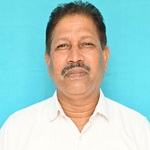About the Event
FutureScape, organised by KCT in collaboration with the Chartered Institute of Building, envisions a world where innovation and imagination redefine how humanity designs, builds, and sustains its future. Conceived as a global moonshot in sustainable engineering and design, the competition brings together emerging thinkers and creators to explore transformative ideas that address the planet’s most pressing challenges. It provides a platform for students and researchers to engage in creative inquiry, interdisciplinary collaboration, and evidence-based innovation - blending scientific rigour with visionary thinking.
Participants are invited to push the boundaries of conventional practice to propose systems, infrastructures, or concepts that embody resilience, equity, and environmental stewardship. By fostering a culture of curiosity and cross-disciplinary problem-solving across Science, Technology, Engineering, and Management (STEM), FutureScape aims to inspire solutions that meet today’s needs while shaping a sustainable and just future for generations to come.
Our Knowledge partners

Moonshot Challenges to Transform Our Future
Choose Your Path to Innovation
CARBON-FREE
CITIES
Can we build cities without carbon? Explore
Ultra-low carbon construction
Bio-based & recycled materials
Regenerative design
15-MINUTE CITIES
What if every citizen could access all essentials within 15 minutes?Focus on
Equitable urban design
Tech-enabled accessibility
Human-centric planning
FUTURE OF MOBILITY
Can mobility be safe, clean, and shared for everyone?Rethink Transport systems
EV infrastructure
Road safety innovations
Intelligent transport systems
ZERO-WASTE CITIES
Can we create zero-waste cities?Design systems for
Waste capture & reuse systems
Climate-resilient infrastructure
Sustainable Waste management
SELF-PROTECTING BUILDINGS
Can buildings sense danger and protect themselves?Explore
Adaptive structural systems
Earthquake-resilient design
Smart monitoring technology
NET-POSITIVE BUILDINGS
What if every building generated more energy than it used?Explore
net-positive buildings
Energy-saving materials
Nature-integrated design
Renewable energy systems
CLIMATE-PROOF
DIGITAL TWINS
Can digital twins make cities climate-proof?
Leverage
AI & IoT integration
Predictive maintenance
Real-time disaster planning
DISASTER-RESILIENT COMMUNITIES
Can we design communities that bounce back stronger after disasters?Integrate
Resilience planning
Flood mapping & mitigation
Adaptive infrastructure
SELF-HEALING INFRASTRUCTURE
Can infrastructure heal itself?Work on
Self-healing pavements
Long-life bridge design
Sustainable maintenance practices
BUILD ANYWHERE
Can we build on any ground, anywhere?Innovate
Advanced tunnelling techniques
Soil stabilization
Climate-resilient foundations
Eligibility
WHO CAN PARTICIPATE?
Undergraduate & postgraduate students from Engineering, Technology, Polytechnic/Applied Sciences, Management
TEAM SIZE
individual / 2-4 members per team
GLOBAL PARTICIPATION
Open to students from any recognized university worldwide
INTERDISCIPLINARY TEAMS
Collaboration across disciplines is highly encouraged!
Guidelines
WHAT YOU NEED TO SUBMIT
ABSTRACT
(300-500 words)
- Problem statement
- Objectives
- Approach
- Expected outcomes
PROTOTYPE/MODEL/SIMULATION
(if applicable)
- Supporting visuals
- Digital models
- Demonstration details
ADDITIONAL REQUIREMENTS
- All submissions must be in English
- Teams may nominate an academic mentor/guide
- AI Usage: Generative AI tools may assist, but work must be original and human-led. Disclose all AI assistance used.
One Team Per Student
Each participant can join only ONE team
Zero Tolerance for Plagiarism
Uncredited work = Immediate disqualification
Prototype Formats Accepted
Physical models, Digital simulations, Software applications
Strict Deadlines
Late submissions will NOT be accepted
Final Round
Shortlisted teams will be invited to deliver a final presentation & demonstration to international jury panel
Final Decisions
Judges' decisions are final and binding
Scrutiny & Selection Process
From registration to recognition — every step matters
Stage 1: Registration Verification
Check eligibility
Intimation for Abstract submission & Product / Poster description (link will be sent to registered Email IDs)
Stage 2: Abstract Evaluation
Panel reviews UN SDG alignment, innovation, and Civil relevance
Shortlisting based on originality and feasibility
Stage 3: Poster / Prototype Review
Initial scoring of design, feasibility and technical soundness
Visual clarity and model functionality assessed
Stage 4: Expert Panel Screening
Judges from academia and industry shortlist teams
In-depth technical and creative evaluation
Stage 5: Finalists Announcement
Selected teams notified with feedback
Guidelines for Expo Day
shared
Stage 6: Expo Day Presentation
Live/online demonstration
with Q&A
Public exhibition of posters and prototypes
Stage 7: Awards
Winners declared; notable entries featured in expo proceedings
Judging Criteria
How your innovation will be evaluated
Innovation & Creativity 25%
Novelty of concept, originality, and potential to address real-world challenges.
Technical Feasibility & Research Depth 25%
Scientific and engineering rigor, quality of design, and practical feasibility.
Social Impact 20%
Relevance to Social and contribution to infrastructure resilience.
SDG Alignment & Interdisciplinarity 10%
Linkage with UN Sustainable Development Goals(SDGs) and integration of multiple disciplines.
Prototype / Poster Quality 10%
Clarity, aesthetics, and effectiveness of visuals and prototypes.
Presentation & Delivery 10%
Communication clarity, confidence, and team coordination.
Evaluation Rubric (1–5 Scale)
|
Score |
Descriptor |
Interpretation |
|
5 |
Excellent |
Exceeds expectations; highly innovative and technically strong. |
|
4 |
Very Good |
Well-developed concept with minor scope for improvement. |
|
3 |
Good |
Competent submission meeting basic criteria with moderate innovation. |
|
2 |
Fair |
Idea is clear but lacks sufficient technical or creative depth. |
|
1 |
Poor |
Insufficient innovation or clarity; limited relevance to theme. |
Awards & Recognition
CIOB- Sponsored Awards
Recognizing Creativity, Innovation and Technical Excellence
Most Commercially Promising idea with societal impact potential
Best Start-Up Idea Award
$
250Project that pushes boundaries of Civil Engineering through Innovation
Best Civil Innovation Award
$
200Prototypes that showcase functionality innovation and applicability
Best Product Award (2 Nos.)
$
100Visually Striking and
conceptually clear
poster displays
Best Poster Presentation (2 Nos.)
$
50Additional Benefits
Certificates of Participation for all teams
International exposure opportunities
Potential nomination to CIOB-aligned global challenges
Timeline
Last Date for Registration [Extended]
January 9, 2026
January 18, 2026 | 11:59 PM IST
(6:29 PM UTC)
Announcement of Finalist
January 19, 2026 | Before 11:59 PM IST
(6:29 PM UTC)
Grand Finale
January 29, 2026 | 9:00 AM – 6:00 PM IST
(3:30 AM – 12:30 PM UTC)
Registration Details
| Category | Registration Fee |
|---|---|
| Students from (Indian University) | ₹ 300 per student |
| Students from (Foreign University) | $ 15 per student |
Additional charges applicable if accommodation required.
Registration Fee Payment
| Name of the Bank | The Karur Vysya Bank |
| Name of the Account Holder | The Correspondent, Kumaraguru College of Technology |
| Account Number | 1245115000000014 |
| IFS Code | KVBL0001245 |
| MICR Code | 641053005 |
| Swift Code | KVBLINBBIND |
About the Organising Institutions
Kumaraguru College of Technology (KCT), Coimbatore is a private Engineering College started in 1984 under the auspices of Ramanandha Adigalar Foundation. KCT is an autonomous institution affiliated to the Anna University, Chennai and approved by All India Council for Technical Education (AICTE). KCT’s Department of Civil Engineering is one of the earliest Engineering Departments established at the college and is accredited by the Chartered Institute of Building (CIOB), UK.

The Chartered Institute of Building (CIOB) is the leading global professional body for construction management, setting standards, advancing education, and championing ethics, sustainability and public interest since 1834. CIOB is a global organisation with 49,700 members across 100 countries.
Get In Touch
Department of Civil Engineering, Kumaraguru College of Technology, Coimbatore, Tamilnadu, India
Drop an email to [email protected]
Faculty Coordinator : Dr. A. Gandhimathi | 📱 +91 8870506893
Student Coordinator : Mr. Niyas Khan | 📱 +91 7094935977





